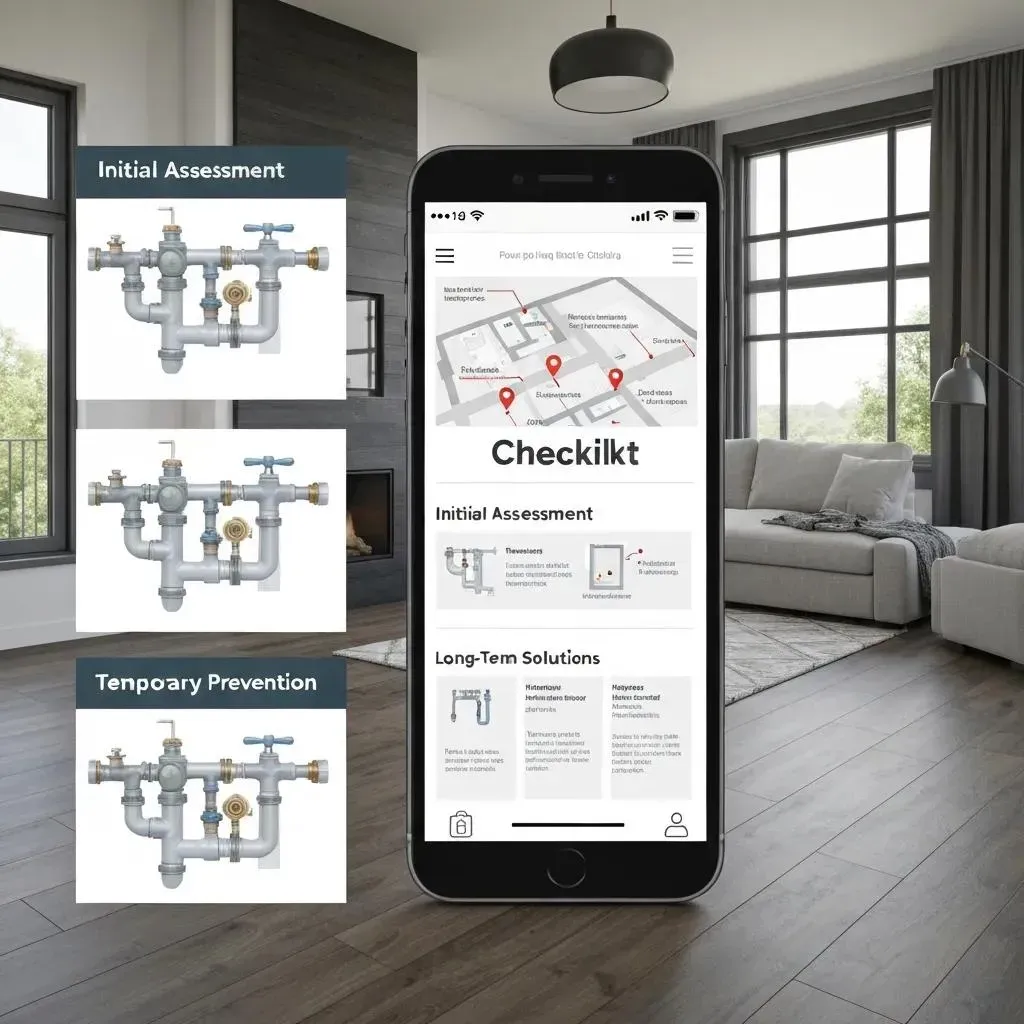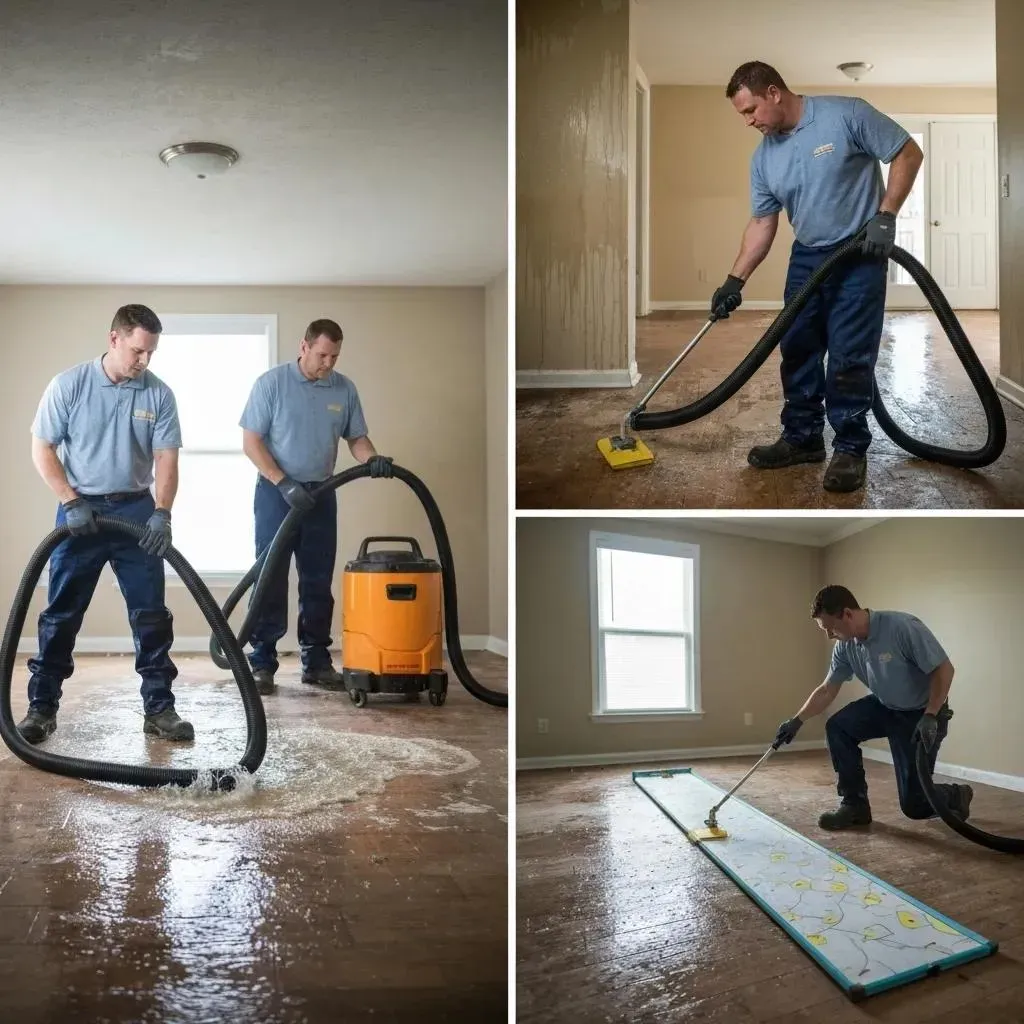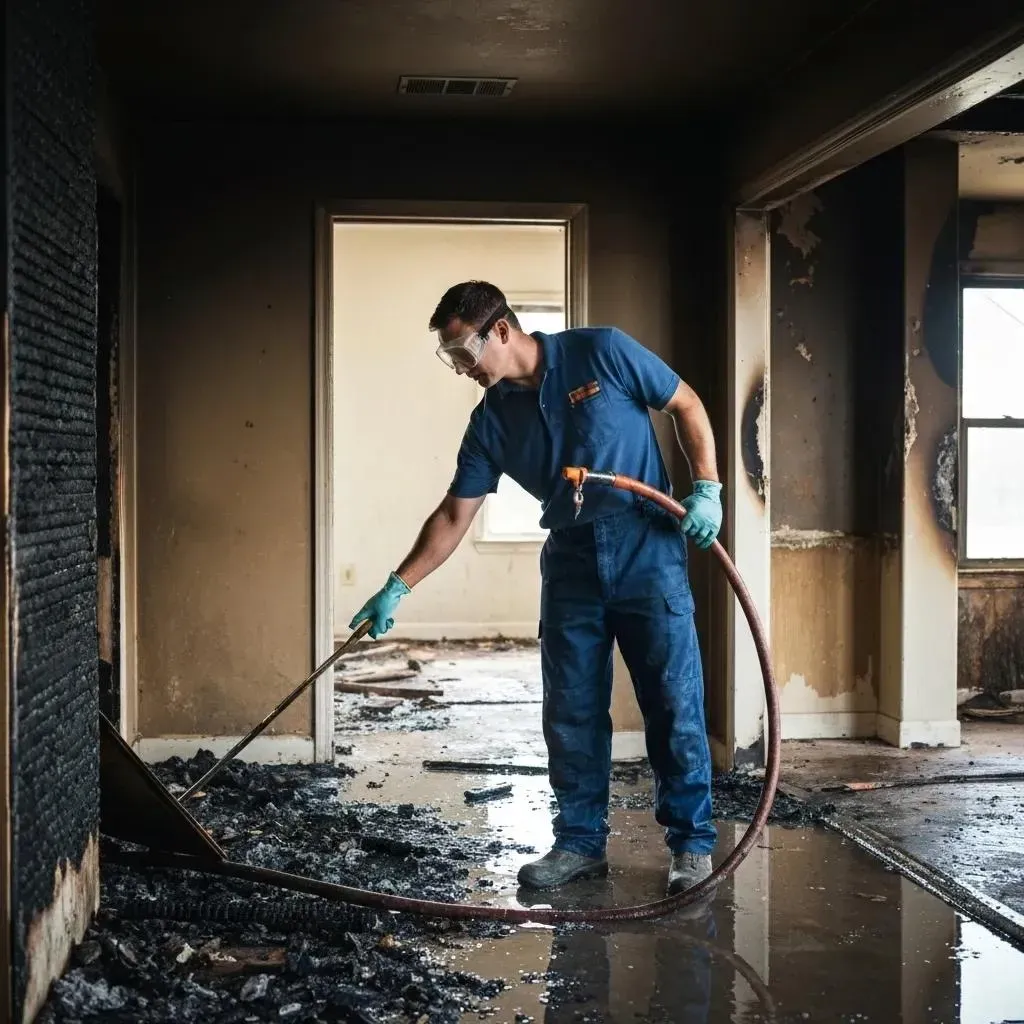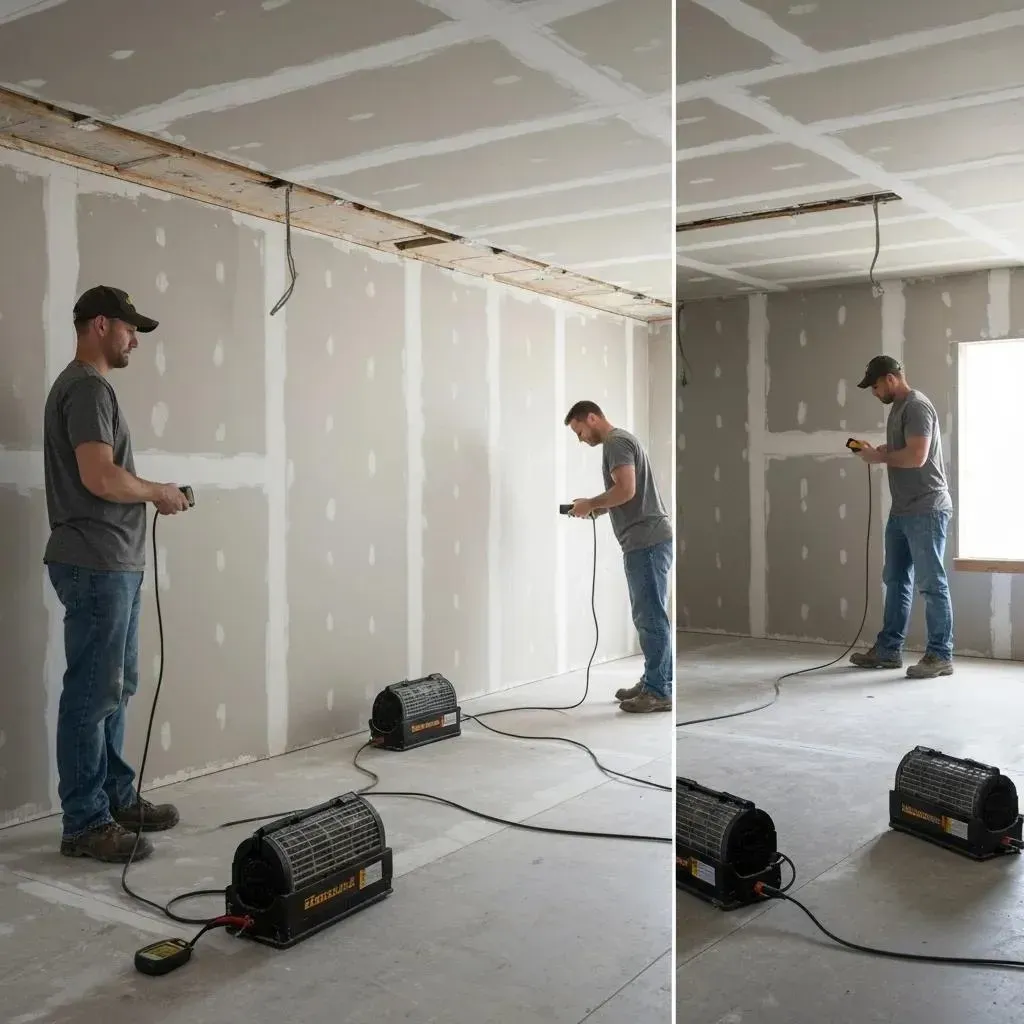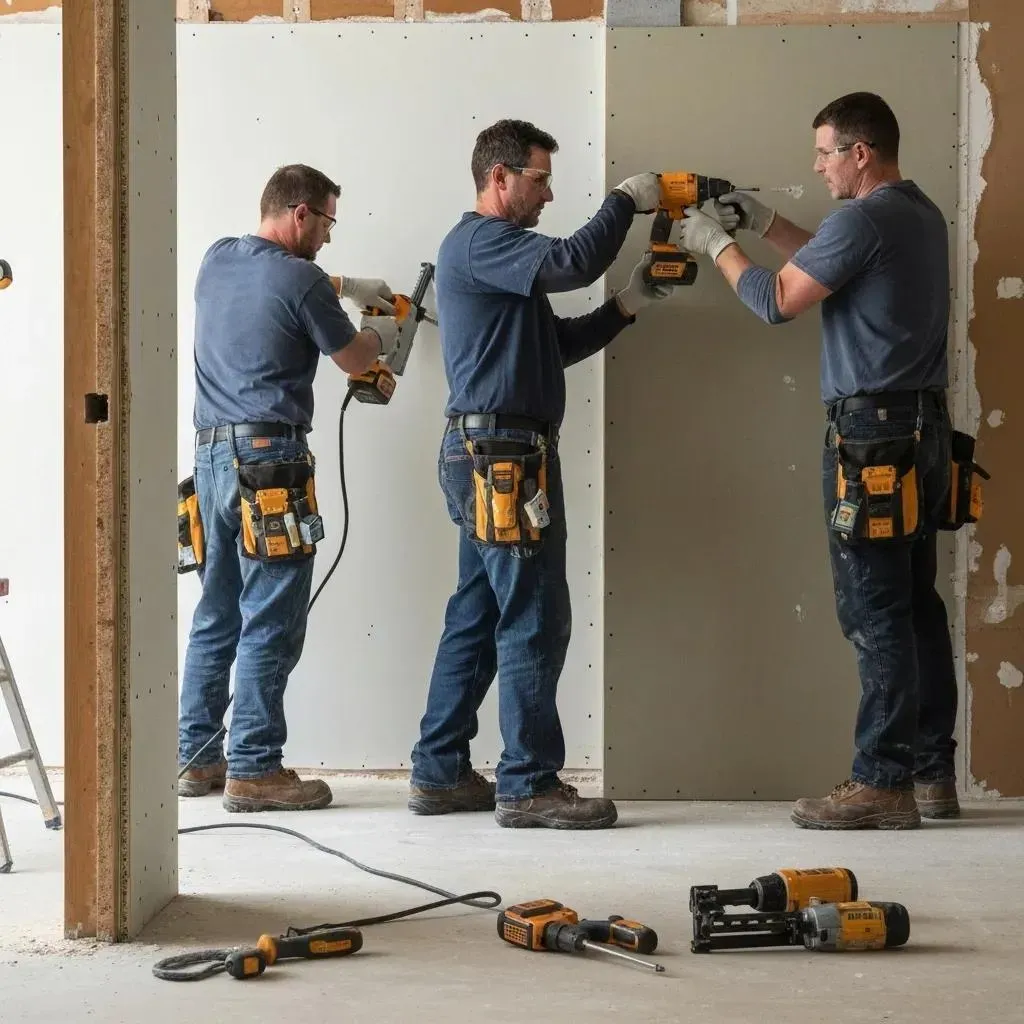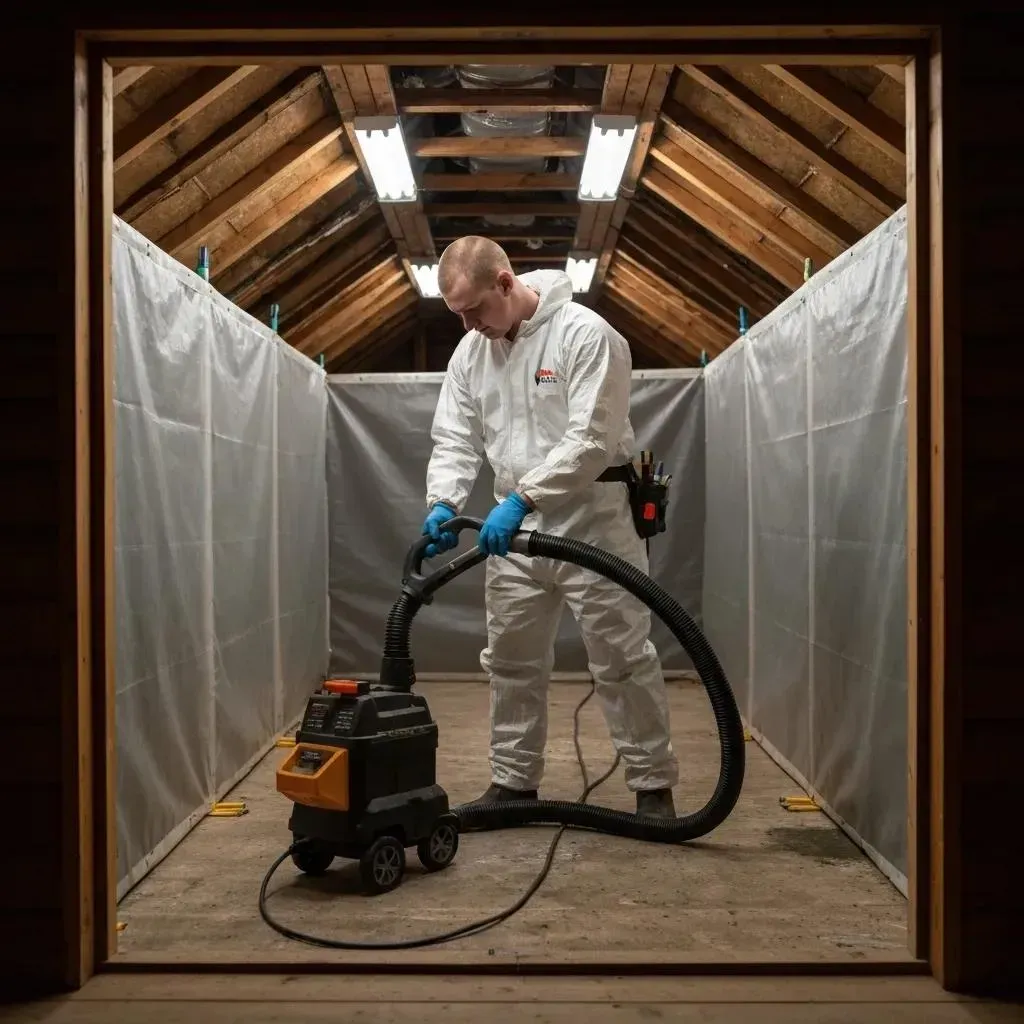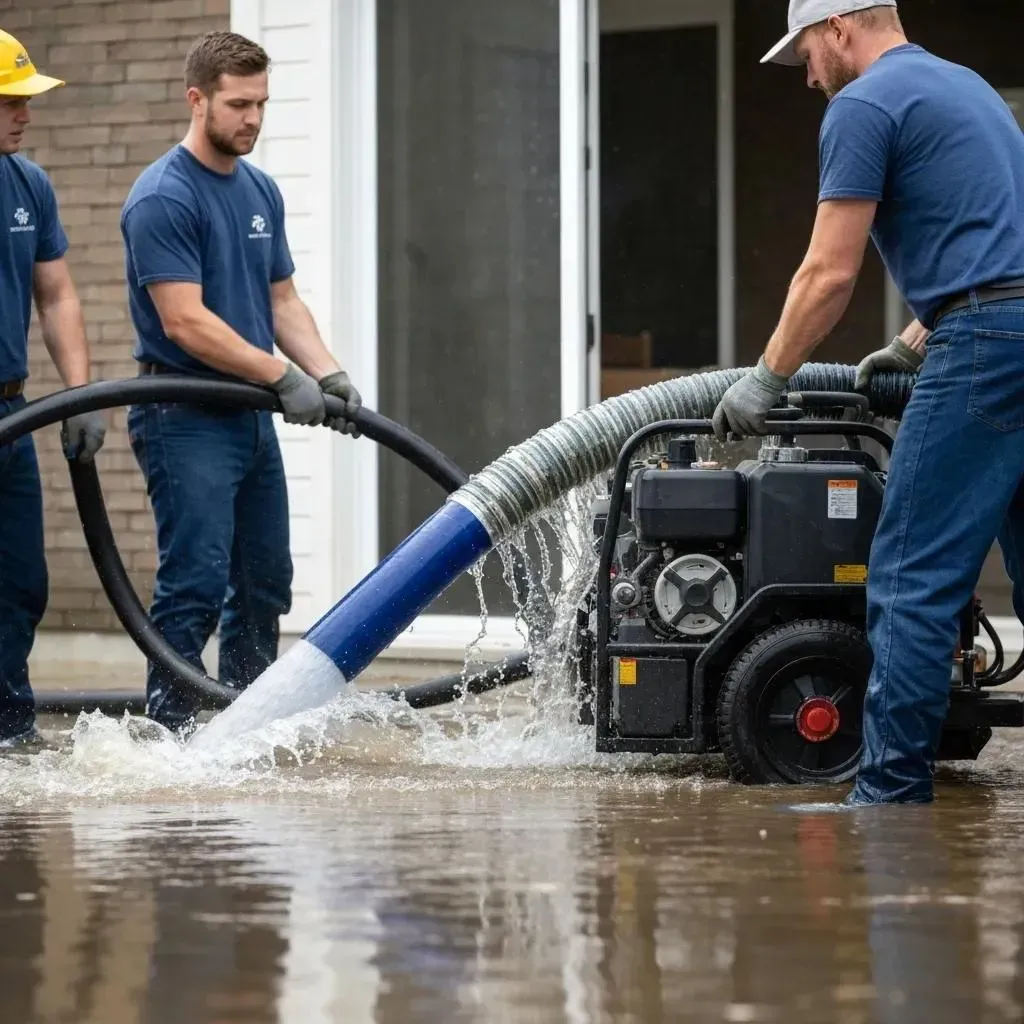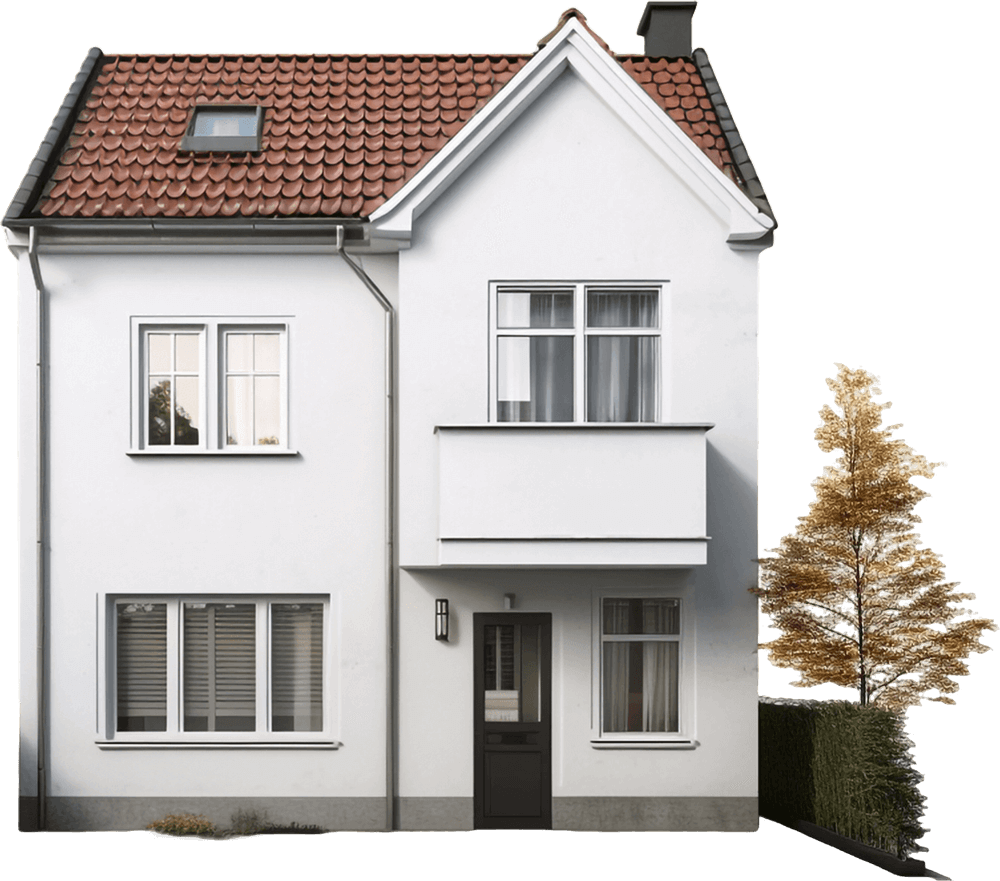Blog
What You Need to Know About Denver Kitchen Remodel Costs
The average kitchen remodel cost in Denver ranges from $50,000 to $100,000, with most homeowners spending between $190 and $375 per square foot.
They say the kitchen is the heart of every home, and in Denver's competitive real estate market, a well-executed kitchen renovation can significantly boost your property's value and appeal. However, the substantial investment required often leads to budget anxiety for homeowners. Whether you're looking to update a cramped galley kitchen in a Washington Park bungalow or create a chef-worthy space in your Cherry Creek residence, understanding local costs is crucial before diving into demolition.
As a Denver homeowner myself, I know how challenging it can be to get reliable cost information that reflects our unique regional market conditions. Between labor shortages, material price fluctuations, and the specific requirements of homes in our altitude, Denver kitchen remodels have their own cost considerations that national averages don't capture.
I'm Mike Martinez, owner of Accountable Home Services, and I've helped hundreds of Denver homeowners steer the complexities of kitchen renovations, providing transparent pricing and reliable craftsmanship for average kitchen remodel cost in Denver projects of all sizes.
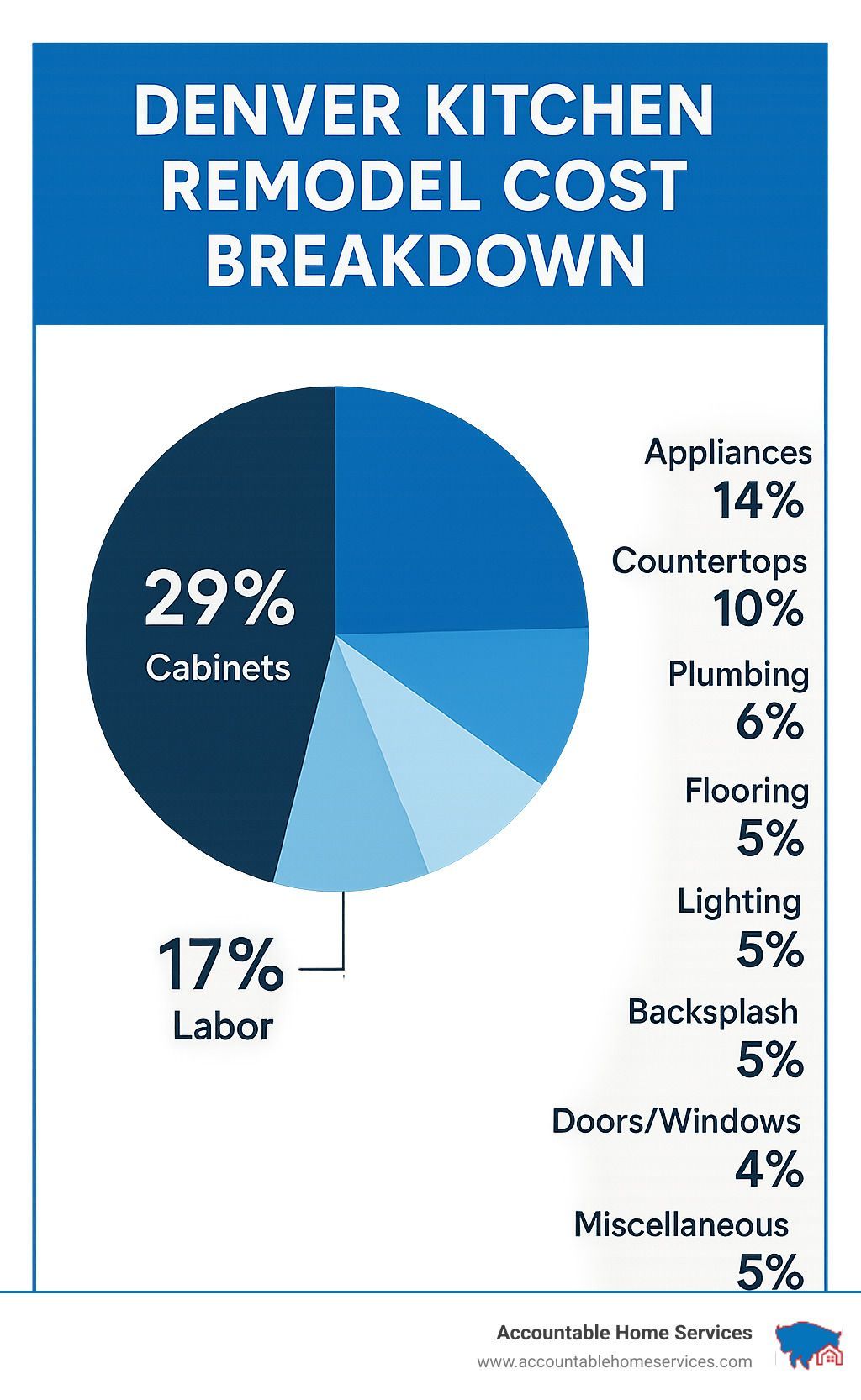
How Much Does the Average Kitchen Remodel Cost in Denver?
When Denver homeowners sit down with us at their kitchen tables to discuss renovation dreams, one question inevitably comes first: "What's this going to cost me?" The truth is, the average kitchen remodel cost in Denver typically falls between $50,000 and $100,000 – a significant investment that reflects our unique local market conditions.
Breaking it down to square footage, most Denver kitchen renovations cost between $190 and $375 per square foot. This wide range isn't arbitrary – it directly reflects your material choices, design complexity, and whether you're keeping the existing layout or reimagining the entire space.
"Most of our clients are landing around the $80,000 mark for a solid mid-range renovation," shares our lead project manager. "When homeowners want the works – custom cabinetry that reaches the ceiling, professional-grade appliances, and knocking down walls – we're typically starting conversations at $150,000."
Don't forget those permit fees! In Denver, they typically range from $200 to $2,500 depending on your project scope. These aren't optional extras when your project involves electrical, plumbing, or structural changes – which nearly every kitchen remodel does.
There is good news for your investment, though. According to the latest Cost vs. Value Report, Denver homeowners typically recoup 50-70% of their kitchen renovation costs when selling. That makes your beautiful new kitchen not just a joy to use, but a financially sound decision too.
2025 Snapshot: Average Kitchen Remodel Cost Denver at a Glance
The median Denver kitchen remodel now sits at around $80,000, a figure that's been steadily climbing. Several key factors are driving this upward trend:
Inflation has hit building materials particularly hard, with some components like cabinetry jumping nearly 30% since 2020. Meanwhile, Denver's construction boom hasn't slowed down, creating fierce competition for skilled tradespeople and driving labor costs upward. While the worst of the pandemic-era supply chain nightmares have eased, custom materials still face extended lead times. And let's not forget Denver's increasingly stringent energy efficiency requirements, which often necessitate electrical upgrades beyond what homeowners initially anticipate.
As Jessica, a recent client in the Highlands neighborhood, told us: "We started with a $60,000 budget based on some national averages we found online. That was our first mistake! Our final investment was $85,000, but we got exactly what we wanted without cutting corners. The extra investment was absolutely worth it."
Comparing Denver to U.S. Averages: Why the Gap?
Nationally, mid-range kitchen remodels average around $80,277, typically ranging from $56,116 to $104,438. While Denver falls within this spectrum, we consistently land near the upper end for several reasons that are unique to our region:
Our mountain location means you're paying premium freight costs to get heavy materials like stone countertops and custom cabinetry up to altitude. Speaking of altitude – Denver homes often require specialized ventilation systems and appliance adjustments to function properly at our elevation.
Denver's booming construction market has created intense demand for skilled trades, with quality electricians, plumbers, and cabinet installers commanding top dollar. Our strong emphasis on energy efficiency means many older kitchens need substantial electrical upgrades to meet current codes. And with Denver's robust real estate values, homeowners often invest more in renovations to match neighborhood standards and maximize future resale potential.
"The difference between a $50,000 kitchen in the Midwest and a $75,000 kitchen in Denver isn't just inflation," explains our design consultant. "It's about the specific challenges of building in our region and Denver homeowners' expectations for quality materials that can withstand our unique climate conditions – from intense UV exposure to dramatic temperature swings."
Understanding these regional factors helps set realistic expectations from the start, ensuring your average kitchen remodel cost in Denver aligns with the quality and durability you deserve in your mountain home.
Cost Ranges by Kitchen Size: Small, Medium, Large
The size of your kitchen is probably the biggest factor in determining what you'll spend on your remodel. Here in Denver, we typically break kitchens down into three categories based on square footage:
Small Kitchens & Condo Galley Makeovers
If you've got a cozy kitchen between 70-100 square feet (common in Denver's historic neighborhoods like Capitol Hill and Baker, or in many downtown condos), you're looking at an average kitchen remodel cost in Denver between $13,300 and $37,500.
These petite spaces come with their own special considerations. I recently worked with a Capitol Hill homeowner who transformed their 80-square-foot galley kitchen for $28,000 by making smart choices. They kept the existing layout (saving thousands on plumbing relocations), opted for ready-to-assemble cabinets with stylish custom pulls, and installed quartz countertops only where absolutely needed.
Small kitchens actually offer some budget advantages. You'll need fewer materials overall, and there are more opportunities to save with some DIY work. Many of our clients handle simpler tasks like installing cabinet hardware, painting, or even tackling the backsplash themselves, potentially saving $2,000-$5,000 on labor.
Space-saving appliances (like 24" ranges instead of standard 30" models), vertical storage solutions, and light color palettes can all help maximize these compact spaces while keeping costs in check.
Medium Kitchens: The Typical Denver 1990s Layout
Medium kitchens (100-200 square feet) represent the majority of what we remodel across Park Hill, Stapleton, and many Denver suburbs. The average kitchen remodel cost in Denver for these spaces typically falls between $19,000 and $75,000, with the wide range reflecting different finish levels and complexity.
"We just wrapped up a 160-square-foot kitchen renovation in Wash Park for $62,000," our project coordinator told me last week. "The homeowners chose beautiful custom maple cabinets, quartz countertops, and energy-efficient appliances. We also opened up one wall to create that contemporary, open-concept feel everyone loves, though the structural work added about $8,000 to their budget."
Medium kitchen remodels often include updating to semi-custom cabinetry with soft-close features, adding or expanding an island for more workspace, upgrading lighting with a combination of recessed and task fixtures, and installing new flooring throughout. These spaces give you more room to personalize without the massive price tag of a truly oversized kitchen.
Large & Luxury Spaces: Expansions and Chef-Level Features
For those blessed with kitchens over 200 square feet (increasingly common in Denver's newer developments and extensively renovated older homes), remodel costs typically start at $55,000 and can easily exceed $112,500.
Luxury kitchen remodels in upscale areas like Cherry Creek, Greenwood Village, and Castle Pines often become showcase projects. One Highlands Ranch family invested $98,000 in their 240-square-foot kitchen change, which included removing a load-bearing wall, installing a spectacular 6-foot island with prep sink, and upgrading to a professional-grade 48-inch dual-fuel range with custom ventilation. They also added custom lighting design and a temperature-controlled wine storage system that makes me a bit jealous every time I visit!
"Large kitchen remodels are rarely just about prettier cabinets and counters," our lead designer often explains to clients. "We're usually addressing fundamental layout issues, improving how people move through the space, and creating multi-functional areas that work for serious cooking, entertaining, and family time."
These bigger projects typically feature architectural-grade custom cabinetry, professional appliance packages ($15,000-$30,000 alone), natural stone with specialty edges, walk-in pantries with custom organization, and integrated smart home technology. While the price tag is substantial, these kitchens often become the centerpiece of the home and a major selling point down the road.
Where the Money Goes: Budget Allocation Breakdown
Understanding how your budget will be distributed across different components helps set realistic expectations and prioritize where to splurge versus where to save. Here's how the typical average kitchen remodel cost in Denver breaks down:
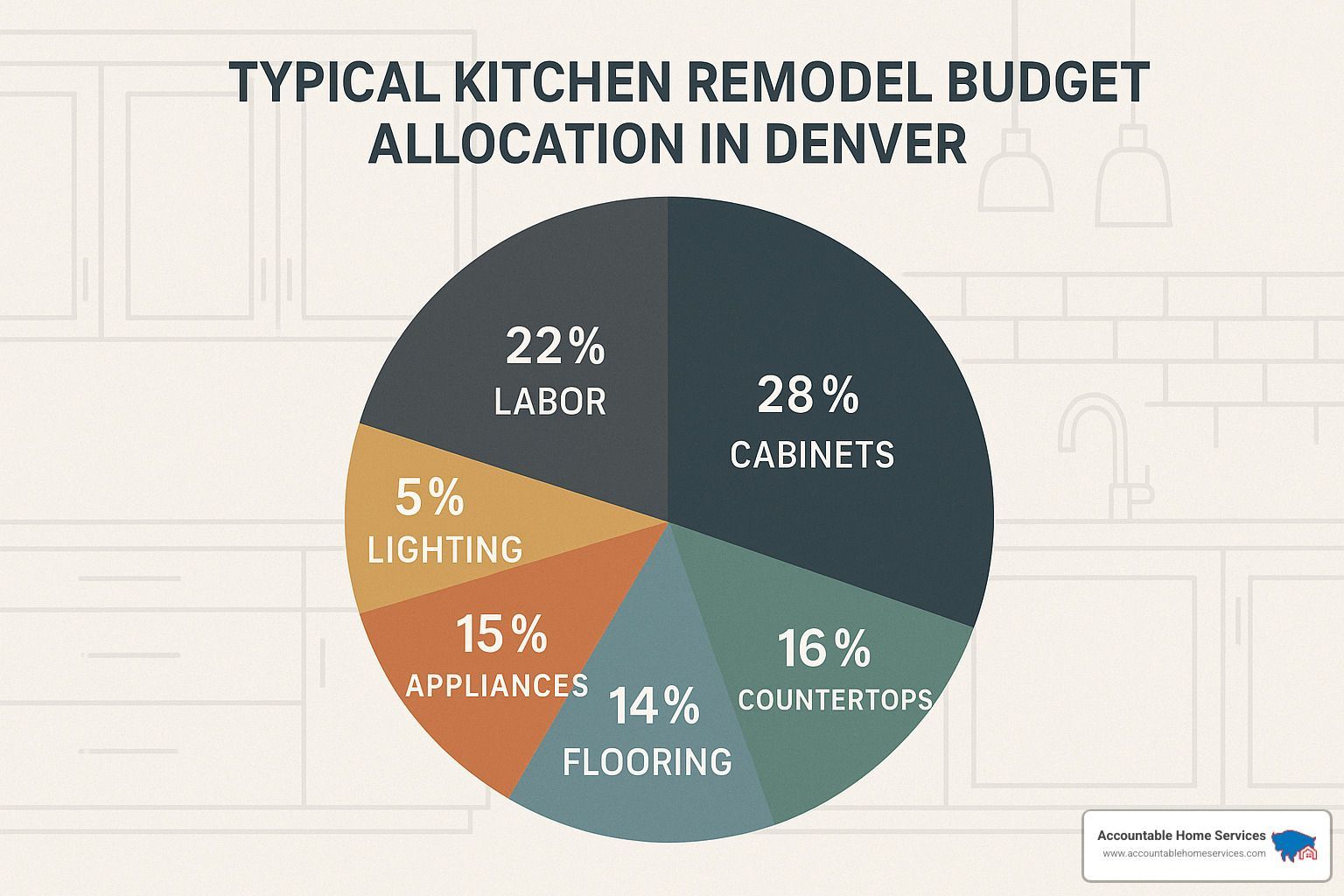
Cabinets vs. Counters: Highest-Impact Choices
When I sit down with Denver homeowners to plan their kitchen remodels, they're often surprised to learn that cabinets typically consume the largest chunk of their budget—about 29% of the total cost. It makes sense when you think about it: cabinets dominate the visual space and take the most abuse in daily use.
In our Mile-High City, cabinet options vary widely in price and quality:
Stock cabinets will set you back $5,000-$15,000 installed, offering decent value for budget-conscious renovations. Semi-custom cabinets range from $10,000-$25,000 installed, providing that sweet spot of personalization without breaking the bank. For those seeking the ultimate in personalization, custom cabinets start around $20,000 and can easily exceed $40,000 installed. On a tighter budget? Cabinet refacing at $7,000-$15,000 can breathe new life into your kitchen while preserving your layout.
"Cabinet quality is not where you want to cut corners," I often tell my clients. "The box construction and hardware determine how long they'll last. In Denver's notoriously dry climate, invest in at least plywood construction versus particleboard—your cabinets will thank you years down the road."
Countertops, while consuming a smaller portion of the budget (about 10%), make an outsized visual impact. Many of my Denver clients are currently favoring:
Quartz ($70-$100 per square foot installed) for its remarkable durability and virtually zero maintenance. Granite ($60-$90 per square foot installed) remains popular for its natural variations and solid performance. Marble ($75-$120 per square foot installed) offers timeless beauty but requires more TLC. And don't overlook butcher block ($40-$80 per square foot installed), which brings warmth to modern designs but needs regular maintenance.
One clever trend I've noticed among my savvier Denver clients: choosing different countertop materials for islands versus perimeter counters. This not only creates visual interest but can also help manage costs—perhaps splurging on that stunning marble for the island while using quality quartz elsewhere.
Labor Costs: Paying for Skill in a Tight Market
Labor costs account for approximately 17% of your total budget—a figure that often surprises my clients until I explain what goes into it. Denver's construction boom has created what I call a "perfect storm" for skilled trades, with experienced professionals commanding premium rates that reflect their expertise.
Current Denver labor rates typically run:
General contractors charge $75-$125 per hour to orchestrate your project. Electricians bill $85-$110 per hour for everything from new circuits to lighting installation. Plumbers command $90-$120 per hour for the complex water and gas work. Cabinet installers ($70-$90 per hour) bring precision to the most visible elements. Tile setters ($65-$95 per hour) create those Instagram-worthy backsplashes.
"The skilled labor shortage in Denver isn't just industry talk—it's very real," I explain to clients planning their timelines. "The best contractors are often booked months in advance. At Accountable Home Services, we've built long-term relationships with our subcontractors to ensure availability, but it's something every homeowner should factor into their planning."
I always caution against choosing contractors based solely on price. The lowest bid rarely delivers the best value. Experienced kitchen contractors bring efficiency, problem-solving skills, and quality workmanship that actually save money over time by avoiding costly mistakes and rework.
Think of it this way: in a market as competitive as Denver's, skilled professionals who charge appropriate rates can afford to do things right the first time—and that peace of mind is worth its weight in gold (or quartz countertops).
Key Factors that Influence Denver Kitchen Remodel Pricing
Beyond the basic components, several factors can significantly impact the average kitchen remodel cost in Denver. Understanding these influences helps you create a more realistic budget and avoid surprises midway through your project.
Permits & Inspections: Non-Negligible Line Items
Most Denver homeowners are surprised by the permit requirements for kitchen remodels. The city requires permits for virtually any work that goes beyond simple cosmetic updates:
"One of the first questions I ask clients is about their electrical and plumbing plans," shares our permitting specialist. "Even moving a single outlet or extending a gas line triggers permit requirements in Denver."
Typical permit costs range from $200 for straightforward projects to $2,500 for extensive renovations. Don't forget to budget for related expenses like same-day review fees ($100-$300), potential reinspection fees ($100 per visit), or expedited weekend inspections ($200-$400) if you're on a tight timeline.
While it might be tempting to skip permits for what seems like minor work, this decision often backfires. Unpermitted renovations can create significant complications when selling your home, may void insurance coverage, and could even require costly tear-outs if finded by city inspectors.
Specialty Upgrades that Add Up Fast
In our experience, it's often the "extras" that push budgets beyond initial estimates. Denver homeowners are increasingly requesting premium features that can quickly escalate costs.
Smart home technology has become particularly popular, with integrated appliances, touchless faucets, and programmable lighting systems adding $2,000-$10,000 to projects. One Cherry Creek client told us, "The smart refrigerator that connects to my grocery list app was worth every penny of the $4,000 upgrade."
Radiant floor heating is another frequent splurge in our mountain climate. At approximately $15-$20 per square foot installed, it's not inexpensive, but the comfort of warm floors on winter mornings makes it one of our most-requested upgrades.
Custom range hoods ($1,500-$5,000+), professional design services (typically 8-10% of project cost), and specialty lighting packages ($2,000-$8,000) are other elements that can transform a standard kitchen into a showpiece while significantly impacting your budget.
Denver's elevation creates unique considerations as well. Some high-end appliances require altitude-specific models or adjustments, potentially adding 10-15% to appliance costs. As one project manager notes, "Gas ranges in particular need proper calibration at our elevation, which sometimes means specific models designed for mountain living."
Energy-efficient upgrades deserve special mention for Denver homeowners. While these features increase upfront costs, they often provide substantial long-term savings. According to scientific research on energy efficiency, ENERGY STAR appliances can reduce utility bills by 10-50% compared to standard models – particularly valuable in our climate with extreme seasonal temperature variations.
"We recently completed a kitchen with a custom zinc range hood, integrated smart appliances, and a specialized ventilation system designed for our altitude," shares our custom project manager. "These specialty items added about $18,000 to the project, but created exactly the statement piece and functionality the homeowner wanted. The smile on their face when they saw the finished kitchen told us it was worth every penny."
Timeline, Permits, and Labor: What to Expect
Planning a kitchen remodel in Denver is a bit like orchestrating a symphony – timing, coordination, and expertise all matter tremendously. From our experience working with hundreds of local homeowners, here's what you can realistically expect:
Your kitchen change journey typically unfolds in three main phases:
Planning and design takes about 4-6 weeks. This is where we'll have initial conversations about your vision, take precise measurements of your space, develop detailed designs, help you select materials that match your style and budget, and submit those all-important permit applications. This planning stage is crucial – rushing through it almost always leads to costly changes later.
Ordering and waiting requires patience – typically 4-12 weeks depending on what you've selected. Custom cabinets can take 8-12 weeks to arrive (sometimes longer during peak seasons), while semi-custom options usually come in 4-8 weeks. If you've fallen in love with specialty appliances or unique natural stone, expect 4-12 weeks and 2-4 weeks respectively. Many Denver homeowners are surprised by these timelines, but understanding them upfront helps set realistic expectations.
Construction is where your dream kitchen finally takes shape, usually spanning 6-15 weeks:
- Demolition transforms your kitchen into a blank canvas in about a week
- Rough-in work (plumbing, electrical, framing) takes 1-2 weeks
- Inspections occur throughout the process, adding 1-2 weeks total
- Cabinet installation requires 1-2 weeks of precise work
- Countertop template and installation adds another 2-3 weeks
- Backsplash and finishing details need 1-2 weeks
- Final inspections and touch-ups complete the process in about a week
"One of the most common questions we hear is 'How will we cook during the renovation?'" shares our client relations manager. "We work with homeowners to create temporary kitchen setups—often in a dining room or basement—with essentials like a microwave, coffee maker, and refrigerator. For larger families, we sometimes phase the work to keep portions of the kitchen functional throughout the project."
For more comprehensive information about our renovation process, visit our Kitchen Renovation Denver page.
Average Kitchen Remodel Cost Denver vs Project Duration
There's a clear relationship between what you spend and how long your project takes. As a general guideline:
Basic kitchen refreshes ($25,000-$45,000) typically take 4-8 weeks of actual construction time. These projects usually maintain the existing layout while updating finishes and fixtures.
Mid-range remodels ($50,000-$100,000) require 8-12 weeks of construction as they often involve more extensive changes like new cabinetry, countertops, and perhaps minor layout adjustments.
High-end renovations ($100,000+) need 12-20 weeks to complete properly, especially when they include layout changes, custom features, or structural modifications.
Several factors can extend these timelines beyond initial estimates. Scope creep – those "while we're at it" additions that pop up during construction – typically adds 2-4 weeks and increases costs by 10-25%. Rush premiums might speed things up but expect to pay 15-30% more for priority scheduling. Holiday slowdowns between November and January are real in Denver, as are potential weather impacts, especially during our unpredictable winter months.
"We always build a buffer into our timelines," explains our scheduling coordinator with a smile. "Even the best-planned projects encounter unexpected challenges, from finding hidden plumbing issues to material delays. A realistic timeline sets proper expectations and reduces stress for everyone involved."
Choosing & Vetting Your Denver Contractor
In a market as hot as Denver's, finding the right kitchen contractor might be the most important decision you'll make. Here's our honest advice for selecting a partner you can trust:
Verify licensing through Denver's contractor license lookup system. This isn't just a formality – it ensures your contractor meets minimum standards and carries proper insurance.
Check references by actually calling at least three recent kitchen remodel clients. Ask specific questions about timeline adherence, communication style, and how they handled unexpected issues.
Review portfolios looking specifically for projects similar to yours in style and scope. This gives you a realistic preview of what your finished kitchen might look like.
Compare detailed bids that include specific materials, brands, and model numbers – not just vague categories. The average kitchen remodel cost in Denver can vary dramatically between contractors, but the cheapest bid rarely delivers the best value.
Examine payment schedules carefully. Be cautious about contractors requesting more than 30% upfront, as this can create risk if problems arise later.
Confirm insurance coverage, including workman's compensation and liability. Without these protections, you could be financially responsible for accidents or damage.
"The relationship with your contractor will last several months, so personal compatibility matters," advises our client liaison. "Beyond technical qualifications, find someone who communicates in a style that works for you and demonstrates genuine interest in your vision."
Finding the right balance of expertise, value, and personal connection makes all the difference in changing what could be a stressful experience into an exciting journey toward your dream kitchen.
Smart Ways to Save & Maximize ROI in the Mile-High City

Let's face it—kitchen remodels in Denver aren't cheap. But as a homeowner who's helped countless families through this process, I can tell you there are plenty of savvy ways to stretch your dollar without compromising on quality.
One of the simplest ways to control your average kitchen remodel cost in Denver is to keep your existing footprint. Each time you move plumbing or gas lines, you're looking at $2,000-$8,000 in additional costs. I recently worked with a Washington Park couple who saved nearly $6,500 simply by keeping their sink and dishwasher locations intact while completely changing their kitchen's look.
Cabinet refacing is another brilliant money-saver that too few homeowners consider. You'll pay 40-60% less than new cabinets, but guests will never know the difference. The solid wood boxes are often the sturdiest part anyway—why replace them if they're in good condition?
"We were shocked at how beautiful our refaced cabinets turned out," shares Maria, a recent client in Highlands Ranch. "We put the $8,000 we saved toward upgrading our countertops to the quartz we really wanted."
Don't overlook the potential savings on appliances. Floor models and open-box appliances often come with full warranties but 20-40% discounts. Local retailers like Appliance Factory Outlet frequently have high-end refrigerators and ranges with minor cosmetic blemishes (often on sides that won't even show in your installation) at substantial savings.
When it comes to materials, being strategic pays off. Splurge on highly visible elements like countertops and backsplashes, while choosing more budget-friendly options for less noticeable components. Your guests will remember your stunning waterfall island, not the brand name of your sink.
For more budget-conscious remodeling strategies, check out our comprehensive guide at Denver Kitchen Remodelers.
Stretching Dollars Without Sacrificing Style
You don't need an unlimited budget to create a magazine-worthy kitchen. I've helped countless Denver homeowners achieve high-end looks with mid-range prices through smart material substitutions.
Porcelain tile that mimics marble has become one of our go-to recommendations. At $8-$15 per square foot (versus $20-$40 for natural marble), today's porcelain options are so convincing that even designers have to look twice. Plus, they're practically indestructible—a huge benefit in busy family kitchens.
Mixing countertop materials creates both visual interest and savings. One of my favorite approaches is using butcher block for the island with stone perimeter counters. This design choice can reduce your overall countertop budget by 15-25% while creating a warm, inviting focal point.
Don't underestimate the power of upgraded lighting. For a relatively modest investment of $1,000-$3,000, new LED fixtures can completely transform your kitchen's ambiance. Under-cabinet lighting, in particular, delivers dramatic impact while improving functionality.
"One of our Arvada clients saved nearly $12,000 by keeping their existing cabinet boxes but replacing the doors and drawer fronts," I tell homeowners who are shocked by cabinet quotes. "We added crown molding and new hardware, and the kitchen looks completely transformed for about half the cost of new cabinets."
Denver residents have an additional advantage: local utility rebates for energy-efficient appliances and fixtures. These programs can save you $500-$1,500 on qualifying purchases while reducing your long-term energy costs—a win-win that's uniquely appealing in our environmentally-conscious city.
Average Kitchen Remodel Cost Denver and Future Resale Value
In Denver's competitive real estate market, a thoughtfully renovated kitchen typically returns 60-73% of its cost when you sell. That's significant, especially considering the enjoyment you'll get from the space in the meantime.
To maximize your return on investment, it's crucial to research neighborhood standards before finalizing your plans. I've seen homeowners lose money by over-improving for their area—installing a $30,000 appliance package in a neighborhood where the typical home sells for $400,000 simply won't pay off at resale.
Neutral color palettes continue to be the safest bet for permanent elements like cabinets and countertops. That doesn't mean your kitchen has to be boring—use accessories, lighting, and easily changeable elements to inject personality.
Denver buyers are increasingly focused on energy efficiency. ENERGY STAR appliances, LED lighting, and water-saving fixtures not only reduce utility costs but have become expected features in our eco-conscious market.
Well-designed storage solutions consistently rank high on buyer wish lists in Denver. Pull-out pantry systems, deep drawers instead of lower cabinets, and specialized storage for baking sheets and cutting boards offer practical appeal that translates directly to higher perceived value.
"We advise clients planning to sell within five years to choose timeless designs over trendy options," I often explain during initial consultations. "The farmhouse style that's popular today may look dated by the time you sell, whereas clean lines and neutral tones have staying power."
Simple smart home features like programmable lighting or touchless faucets appeal to tech-savvy Denver buyers without adding significant cost to your remodel. These modern touches signal that your home has been thoughtfully updated throughout, not just superficially refreshed.
By balancing immediate enjoyment with long-term value, your kitchen remodel can be both a pleasure to use and a sound financial investment in Denver's dynamic real estate market.
Frequently Asked Questions about Denver Kitchen Remodel Costs
How much should I budget for contingencies?
When planning your kitchen renovation, I always recommend setting aside 10-15% of your total budget for those "uh-oh" moments that inevitably pop up. If you're renovating a charming Denver bungalow built before 1960, lean toward that 15% mark—these older homes love to surprise us once we start opening up walls!
Just last month, one of our Highlands clients finded original knob-and-tube wiring during what they thought would be a simple cosmetic update. Their carefully planned contingency fund covered the unexpected $4,800 rewiring cost without derailing their entire project or forcing them to compromise on their dream finishes.
The most common budget-busters we encounter in Denver homes include hidden plumbing issues that don't meet current code (typically adding $1,500-$4,000), electrical panel upgrades needed for modern appliances ($2,000-$5,000), and the occasional unwelcome findy of asbestos in old flooring or wall materials ($2,000-$6,000). If you're adding that gorgeous kitchen island you've been dreaming about, don't be surprised if you need structural reinforcement underneath, which can add another $1,800-$3,500 to your budget.
Do I need a permit if I don't move plumbing?
This question comes up in nearly every initial consultation, and the answer is: it depends on the scope of your project. For purely cosmetic updates, you can generally skip the permit process. This includes painting cabinets, swapping out hardware, replacing countertops on existing cabinets, or installing a new sink in the exact same location with similar connections.
However, the city of Denver does require permits when your project involves:
- Adding or relocating electrical outlets (even just one!)
- Installing new light fixtures (beyond simple replacements)
- Modifying or adding gas lines for that professional range
- Removing or altering walls, even non-load-bearing ones
- Changing window or door openings
The good news is that Denver's permitting process has become much more streamlined in recent years. Many permits can now be obtained through online applications, saving you valuable time. For more complex projects, I always suggest scheduling a pre-application consultation with the building department. This small investment of time upfront can save significant headaches down the road by clarifying exactly what your specific project requires.
Can I live in my house during the remodel?
"Can we stay in our home during construction?" is probably the second most common question we hear (right after "How much will it cost?"). The short answer is yes—most Denver homeowners do remain in their homes during kitchen renovations, though it requires some flexibility and creative problem-solving.
One family of five we worked with in Stapleton recently set up a temporary kitchen in their garage during their eight-week renovation. We installed a utility sink, moved their refrigerator out there, and they used electric cooking appliances like a hot plate and microwave. The mom told me they actually enjoyed the "camping experience" and the kids thought it was an trip!
To make living through a renovation more manageable, we typically recommend:
Creating a temporary kitchen setup with essential appliances in another room—dining rooms, laundry rooms, and even garages can work well with some planning. At minimum, you'll want a refrigerator, microwave, coffee maker (Denver residents never compromise on their coffee!), and a utility sink if possible.
For larger kitchens, we sometimes can phase the construction to keep portions functional throughout the project. This approach might extend your timeline slightly but can make daily life much more manageable.
Professional contractors like our team use plastic barriers and air scrubbers to minimize dust migration to the rest of your home. This isn't just about comfort—it's a health consideration, especially for family members with respiratory sensitivities.
If possible, try to schedule the most disruptive phases (demolition and drywall work) during planned vacations or when you might be able to stay with family. Even a weekend away during the dustiest part of the process can make a big difference in your renovation experience.
Water and electrical service may need to be temporarily disconnected during certain phases, but experienced contractors will always give you advance notice so you can plan accordingly.
With thoughtful preparation and realistic expectations, living through your average kitchen remodel cost in Denver project can be manageable—and the beautiful end result will be well worth the temporary inconvenience!
Conclusion
Undertaking a kitchen remodel in Denver requires careful planning, realistic budgeting, and partnership with experienced professionals who understand our unique regional challenges. The average kitchen remodel cost in Denver may be higher than national figures suggest, but the investment pays dividends in both quality of life and property value.
As you begin planning your kitchen change, we recommend:
- Start with a detailed vision of your goals and priorities
- Establish a realistic budget with appropriate contingency funds
- Research and interview multiple contractors for compatibility and expertise
- Understand the timeline implications of your design choices
- Prepare for the disruption with practical living arrangements
At Accountable Home Services, we bring over two decades of experience to Denver kitchen remodels, combining craftsmanship with transparent communication. Our family-owned approach means we treat your home with the same care we would our own, delivering kitchens that balance beauty, functionality, and value.
Ready to transform your kitchen? Learn more about our approach to kitchen remodeling or contact us for a detailed consultation and estimate custom to your specific needs and budget.
Your kitchen is more than just a room—it's the heart of your Denver home, where memories are made and shared. Investing wisely in this space pays emotional dividends every day, long before you calculate the financial return on your investment.

